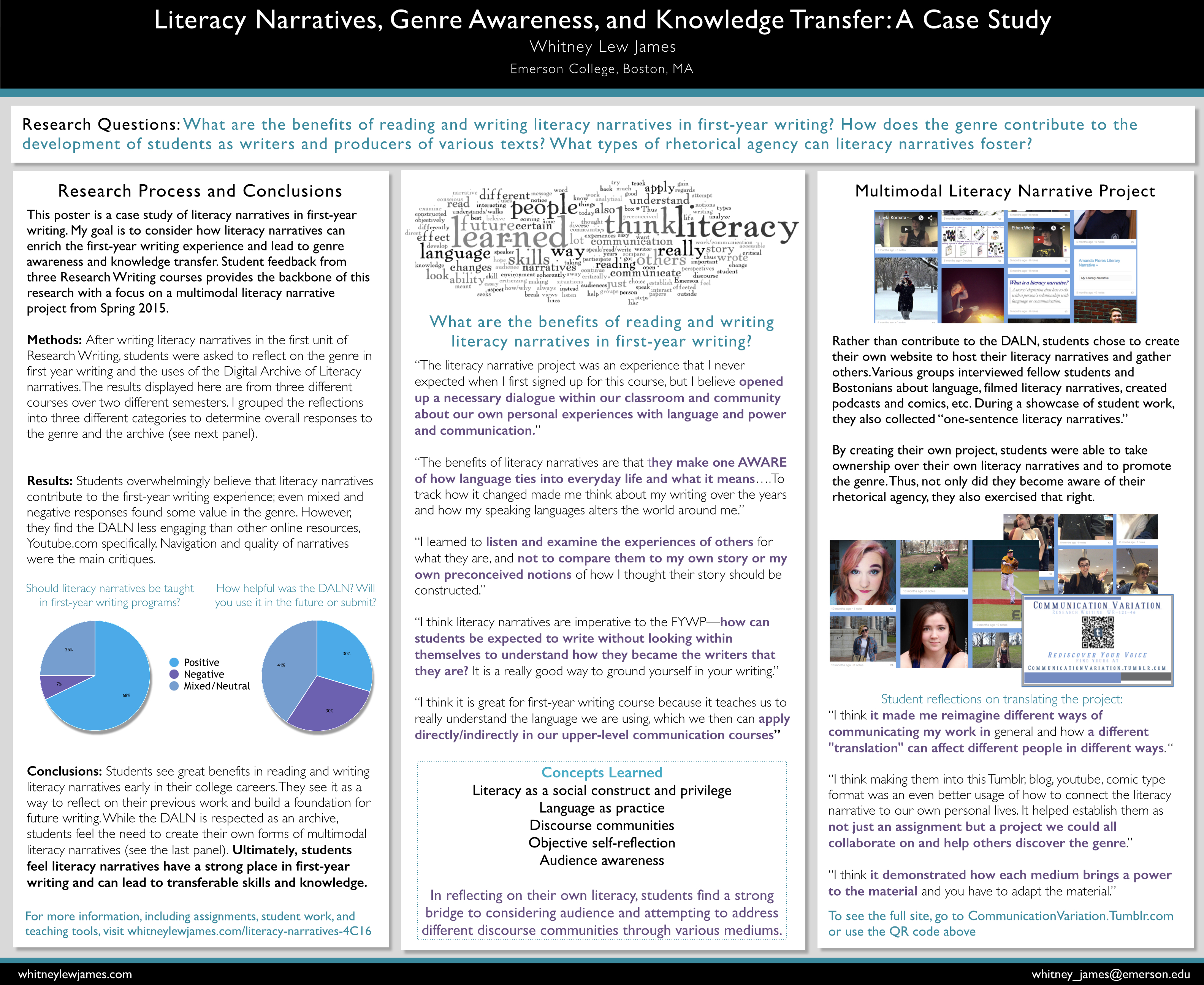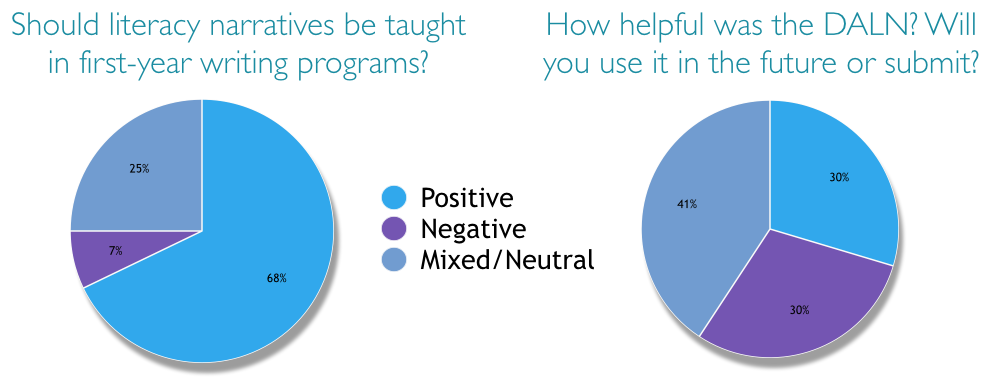Welcome to the companion website to the poster presentation, “Literacy Narratives, Genre Awareness, and Knowledge Transfer: A Case Study” from the Conference on College Composition and Communication 2016!
Poster
This poster focuses on a case study of using literacy narratives in first-year writing to reconceptualize the genre’s place in composition courses. Student feedback from three Research Writing courses provide the backbone of this research with a focus on a multimodal literacy narrative project from Spring 2015.
Survey Results
Methods: After writing literacy narratives in the first unit of Research Writing, students were asked to reflect on the genre in first year writing and the uses of the Digital Archive of Literacy narratives. The results displayed here are from three different courses over two different semesters. I grouped the reflections into three different categories to determine overall responses to the genre and the archive. To see full results and categorization, go here.
Results: Students overwhelming found that literacy narratives were helpful in first-year writing. Not only did they find the genre engaging, but they felt that it was important to their development as writers. Several students mentioned that literacy narratives should be taught earlier in college or even in high school. In fact, negative responses were mostly focused on placement in the course—it should be earlier—and emphasis—not a whole unit. In terms of the DALN, students had mixed responses. While some found the archive interesting and necessary, many commented on the quality of narratives and navigation of the site. Some students did indicate that they would participate, at this time no one has done so. Interestingly, students who were particularly enthusiastic about the genre often expressed interest in showcasing their literacy narratives elsewhere. In my Spring 2015 course, this resulted in “Communication Variation,” a website to house and collect literacy narratives.
Conclusions: Students see great benefits in reading and writing literacy narratives early in their college careers. They see it as a way to reflect on their previous work and build a foundation for future writing. While the DALN is respected as an archive, students feel the need to create their own forms of multimodal literacy narratives. Ultimately, students feel literacy narratives have a strong place in first-year writing and can lead to transferable skills and knowledge. In reflecting on their own literacy, students find a strong bridge to considering audience and attempting to address different discourse communities through various mediums.
For complete survey results and categorization, go to “Survey Responses”
Student Work
Rather than contribute to the DALN, students from Spring 2015 chose to create their own website to host their literacy narratives and gather others. Various groups interviewed fellow students and Bostonians about language, filmed literacy narratives, created podcasts and comics, etc. During a showcase of student work, they also collected “one-sentence literacy narratives.”
By creating their own project, students were able to take ownership over their own literacy narratives and to promote the genre. Thus, not only did they become aware of their rhetorical agency, they also exercised that right. The result was Communication Variation.
Literacy Narratives and Translations: Selected literacy narratives from students in Emerson College writing courses
Teaching Tools
Lesson Plan for Community Literacy-Themed Course: This service-learning course used literacy narratives as a platform for exploring the development of literacy and definitions of literacy.
Writing Assignment and Workshop Prompts: This assignment asks students to respond to the literacy narratives in one of three genres. In a total of three classes in two different semester, students overwhelming choice to write literacy narratives. The workshop prompt provides framework for students to explore and reflect on the literacy narrative as a genre and gives specifics for peer workshops.
DALN Research Prompt: This assignment is given while still exploring and defining the literacy narrative genre. Students are asked to explore the DALN and complete a short rhetorical analysis.
Advice from Students: Survey responses when asked what advice the students would give to instructors teaching the genre.

